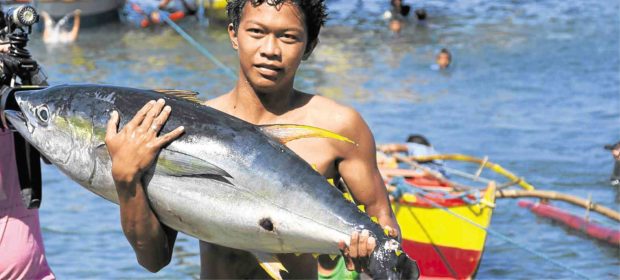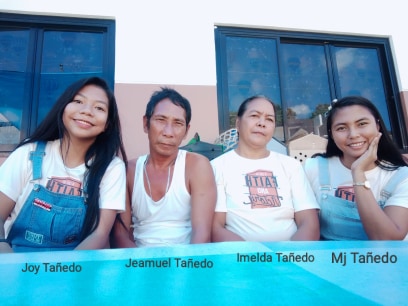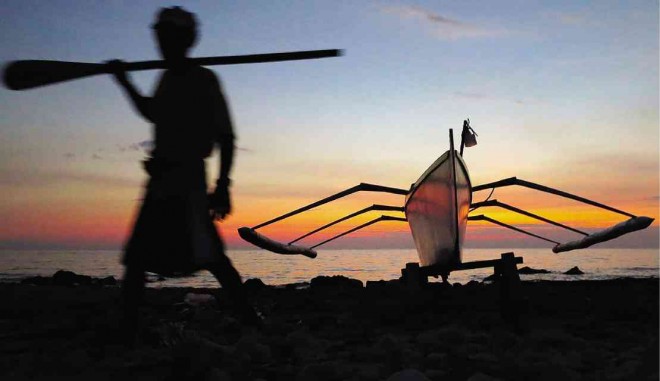A fisherman’s daughter and her heroic dad’s pursuit of a better life
Credit to Author: ggaviola| Date: Sun, 16 Jun 2019 02:46:43 +0000
SAN JOSE, Occidental Mindoro – This is a fishing town located 400 kilometers south of Manila, known for its rich fishing grounds and beaches, Occidental Mindoro is on the map as a premier tourist destination.
This is the town where I grew up.
Along the beach, early in the morning, I oftentimes encountered them as they hauled their catch after staying in the open seas for a long time.
These dark skinned burly men carried large tuna, snapper, tanigue (King Mackerel) while their wives eagerly welcomed them back.
At the time, I didn’t know that they spent weeks – even months before making it back to town.
Some of the fishermen’s wives or mothers have fish stalls in the San Jose Public Market where they can sell their catch at a much lower price.
When I first visited our hometown after more than five years, there was not much fish, except for farm-raised milkfish.
I realized that it was full-moon then. The catch depends on nature. I remember an uncle, who was also a fisherman told me this:
“The fish follow the light of the moon. When the moon is not full, they follow the lights from our boat, so we have fish.” That seemed plausible for a child like me who seldom eats fish.
Grim headline
Recently, Occidental Mindoro hogged the headlines not for its pristine beaches, nor bountiful catch, but for an incident involving local fishermen and a Chinese vessel.
On June 9, 2019, F/B Gem-Ver 1, a Filipino fishing boat with 22 crew members was rammed by a Chinese vessel while it was anchored near the Recto Bank (Reed Bank) in the West Philippine Sea.
For the twenty-two fishermen with mouths to feed, this is more than a diplomatic issue, this a threat to their livelihood and survival.
Fishing tradition
In San Jose, a skill or an occupation like fishing is handed-down through generations. Hence, the sons of the fishermen are expected to follow their father’s footsteps.
Joy Tañedo, a 17 year-old senior high school student, is well aware of the hardships of having a family whose life depends solely on the bounties of the sea.
“My grandfather was a fisherman. My father inherited the boat from his father,” Joy said.
Her father Jeamuel Tañedo was the first contact of the Vietnamese vessel’s crewmen who rescued the twenty-two fishermen.
Felix dela Torre, the owner of the capsized boat is Tañedo’s cousin and Joy’s uncle.
Back in the day…
As a child, Joy said that her father brought them to nearby Palawan province when he and his nine crewmen fished at Reed Bank.
When she and her two sisters started school, they permanently settled in San Roque, a village in San Jose, Occidental Mindoro.
Joy’s family has a three-ton capacity wooden fishing boat.
Tañedo hires 19 crew members when they fished in the West Philippine Sea.
According to him, the Mindoro Strait does not have enough first-class fish to sustain the fishing community.
He sells the fish at the Market 3 in Navotas City in Metro Manila because they fetch higher prices compared to the local market in San Jose.
Ebbs and tides of fishing
The months of June to September are considered lean months in Occidental Mindoro. We call it ‘tagkiriwi’, a local term for hardships. It is the typhoon season.
June is also the start of classes in the Philippines.
“During a typhoon, the fishing boat seeks refuge in any island where they can get protection from huge waves. When this happens, they don’t have enough catch,” Joy explained.
Joy’s mother is a housewife. To augment the income from fishing, her mother sells charcoal.
But this is not enough to send them to school. When there is not enough fish to sell, her parents opted for ‘cash advance’ from their buyers in Navotas, which they have to pay back with fish.
Dad goes all out
“It is difficult for my parents. My father, even if he is not feeling well would go out in the sea, hoping to catch fish,” Joy said.
Every time her father is out to the sea, the family worries.
“We know the dangers. Out there we lost our contact with them. Usually, my father spends 15 days at sea. But it takes more than one month before he comes home when there is a typhoon,” Joy said.
Joy shared that her father had his own share of misfortunes while at sea – a capsized boat and a crew member struck by lightning – but this is the first time he feels threatened by the presence of Chinese vessels in the contested region.
Would Tanedo retire from being a fisherman given the volatile situation at the WPS?
“My father would not consider leaving the sea. It is our only livelihood. Besides, my sisters are still studying,” Joy lamented.
As a daughter of a fisherman, Joy’s predicament is echoed by the countless families whose lives depend on the bounty of the ocean.
Aside from a rich fishing ground, the Recto Bank holds billions of barrel oil and natural gas.
Appeal for respect
“I hope they (China) would respect the Filipino fishermen. These people only want to earn money for their families. I hope the Chinese government will take responsibility. It’s not all about the tons of fish lost for nothing, it is about life and our rights,” Joy concluded. /gsg


